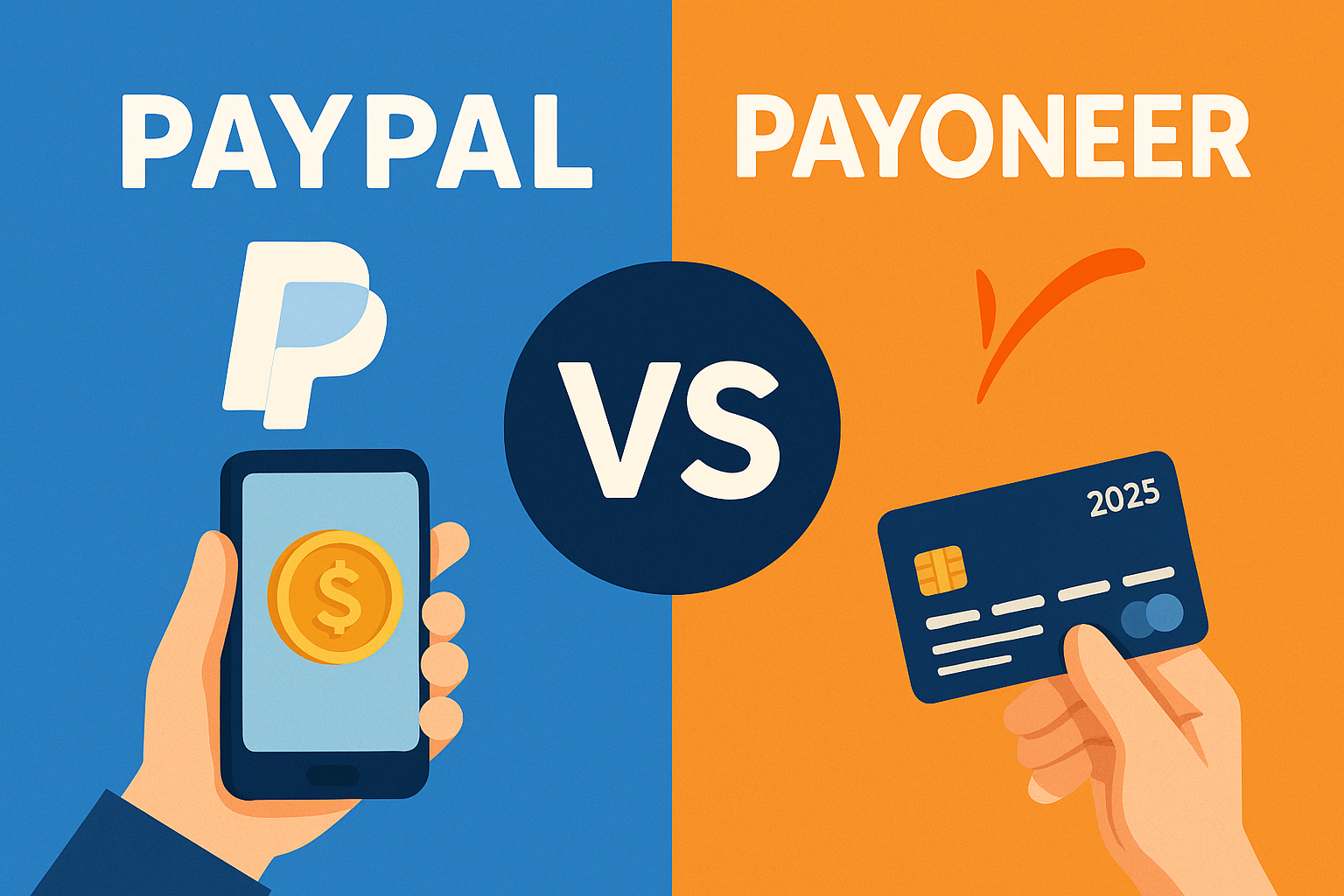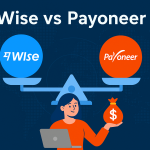PayPal vs Payoneer (2025): Which Payment Platform Is Better for Freelancers?
For international freelancer payouts in 2025, PayPal and Payoneer remain two of the most recognized platforms. Both are widely available, but they differ in fees, speed, currency support, and workflows. This expert comparison focuses on what actually affects your take-home: FX, commissions, payout speed, and marketplace integrations.
TL;DR — Quick Recommendation
- Work mostly with marketplaces (Upwork, Fiverr, Amazon): Open a Payoneer account — strong native integrations, flexible withdrawals, and multi-currency receiving.
- Need PayPal specifically for certain clients/shops: Keep PayPal as an optional method, but confirm fees in advance for cross-border payments.
Coverage & Currency Support
PayPal is available in 200+ countries, widely recognized by online stores and consumer payments. It’s convenient for one-off invoices and ecommerce, yet limited for holding multiple currencies without extra conversion steps.
Payoneer offers local receiving accounts (USD, EUR, GBP, and others) so clients can pay you as if they were making a local transfer. This helps reduce double conversions and simplifies accounting for international work.
Fees & FX — What You’ll Really Pay
| Item | PayPal | Payoneer |
|---|---|---|
| International receipt | ~3.5–5% (varies by corridor and account type) | Often lower; marketplace disbursements usually free to balance |
| FX / conversion | Spread typically higher vs fintech peers | Spread typically ~0.5–2% depending on route |
| Withdrawal to local bank | Fees vary; timing depends on region | Low fixed + FX margin; timing usually 1–3 business days |
| Cards | PayPal card availability varies by country | Prepaid Mastercard available; ATM fees apply |
Numbers are indicative and vary by country/corridor. Always check the in-app quote before sending/withdrawing.
Speed & Reliability
- PayPal: Instant wallet-to-wallet; bank withdrawals can take 1–3 business days depending on region.
- Payoneer: Marketplace disbursements are typically same-day to your balance; bank withdrawals usually 1–3 business days.
Integrations & Workflows
PayPal shines for ecommerce and consumer payments. However, its fees on cross-border invoices can be steep for larger amounts.
Payoneer is tightly integrated with major freelance marketplaces and mass-payout programs. For freelancers who earn from platforms and direct B2B clients in different currencies, Payoneer’s receiving accounts and withdrawals make cash flow simpler.
Which One Should You Choose in 2025?
If your income comes mainly from marketplaces and international B2B clients, Payoneer typically results in lower friction and more predictable costs. If some clients insist on PayPal, keep it as a secondary method but run the numbers on fees and FX before invoicing.
Bottom Line
Most global freelancers in 2025 do best by defaulting to Payoneer for cross-border earnings and using PayPal only when a client requires it. This mix keeps your fees in check while maintaining flexibility.
Disclosure: This article contains an affiliate link. We may earn a commission if you sign up via our Payoneer link, at no extra cost to you.





